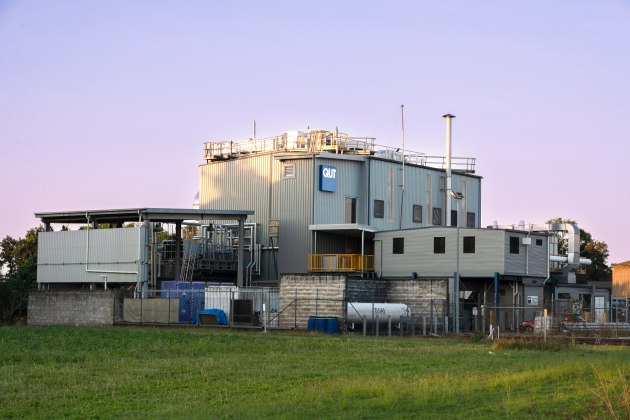The Queensland University of Technology (QUT) has completed an $18 million upgrade of its Mackay-based QUT Pioneer BioPilot, formerly known as the Mackay Renewable Biocommodities Pilot Plant (MRBPP), transforming it into a leading fermentation facility.

The global bioeconomy, currently valued at US$4 trillion, is predicted by the World Bioeconomy Forum to grow to US$30 trillion by 2050, equivalent to a third of total global economic value.
Through the application of biotechnologies like cell cultivation, precision fermentation, plant molecular farming and synthetic biology, Australia has the potential to capitalise on a multi-billion dollar opportunity and become a global biomanufacturing leader, with several local companies already positioned as world leaders.
According to QUT Centre for Agriculture and the Bioeconomy researcher, Professor Ian O’Hara, precision fermentation is a technology that can convert sugars into a range of other food ingredients and products in brewery-style fermentation tanks.
“The advantages of precision fermentation are that it can lead to new food products and ingredients that supplement production through traditional methods, providing sustainability benefits and increasing consumer choice,” said O’Hara.
“The QUT Pioneer BioPilot is pioneering research and innovation in biomanufacturing, working with government and industry to position Queensland as a globally connected innovation hub. QUT is leading regional innovation across Queensland, empowering communities and driving sustainable economic growth.”
With funding from the Australian and Queensland governments and in association with Australia’s Food and Beverage Accelerator (FaBA), the QUT Pioneer BioPilot has been upgraded into a pilot-scale fermentation food-grade facility, in the works since the beginning of 2024.

The university said this will empower innovative companies to work with QUT researchers to create new types of food and other bioproducts offering dietary alternatives and sustainable solutions to agricultural challenges.
The most recent project to be announced is a $5.5 million investigation into commercialising human lactoferrin, in partnership with Eclipse Ingredients and other institutions.
Eclipse Ingredients CEO, Siobhan Coster, said she was thrilled to be working with QUT and FaBA on the project, which has the potential to transform health outcomes across the lifespan.
“The partnership with QUT is crucial because it bridges the gap between breakthrough science and real-world impact,” said Coster.
“It allows us to scale our product and process from lab to commercial readiness right here in Queensland, Australia.”
A key feature of the upgraded facility is its fermentation bioreactors, which allow companies to fast-track product development in the food and beverage sector.
“This facility will enable innovative companies to take their ideas beyond the lab and into commercial reality, building Queensland’s reputation as a regional leader in biomanufacturing,” said O’Hara.
“No one else can provide the capability we are offering Australian industries through the QUT Pioneer BioPilot. The feedstocks we are developing for this process are diverse, but the sugarcane industry is the key driver for much of this work. This puts Queensland, which has 95 per cent of Australia’s cane industry, at the heart of this area of innovation and opportunity.”
Assistant Minister for Primary Industry Development, Water and Western Queensland, Sean Dillon, said this is about turning Queensland’s agricultural strengths into global opportunities, aligning with the state’s vision for primary industries in Prosper 2050.
“The upgraded MRBPP gives local researchers and industry the tools to turn biomass into high-value products – right here in Mackay,” said Dillon.
“It’s a powerful demonstration of how regional Queensland is open for business, strongly appealing to companies looking to use sugar feedstocks for their products.”
Mackay has the potential to become a biomanufacturing hub, with Cauldron Ferm and the Queensland government currently developing a precision fermentation contract manufacturing facility in the area, through the Industry Partnership Program (IPP).
The company said Cauldron Bio-fab will be the first and largest end-to-end contract manufacturer for precision fermented bioproducts in the Asia-Pacific region. The industrial biomanufacturing site will employ Cauldron’s novel hyper-fermentation technology, a continuous fermentation process that significantly reduces costs.
It is the first planned industrial facility for Cauldron, as the company expands production from its current 25,000-litre demo facility in New South Wales.






